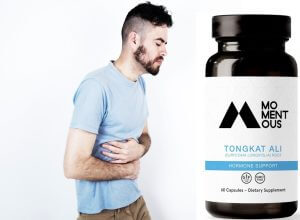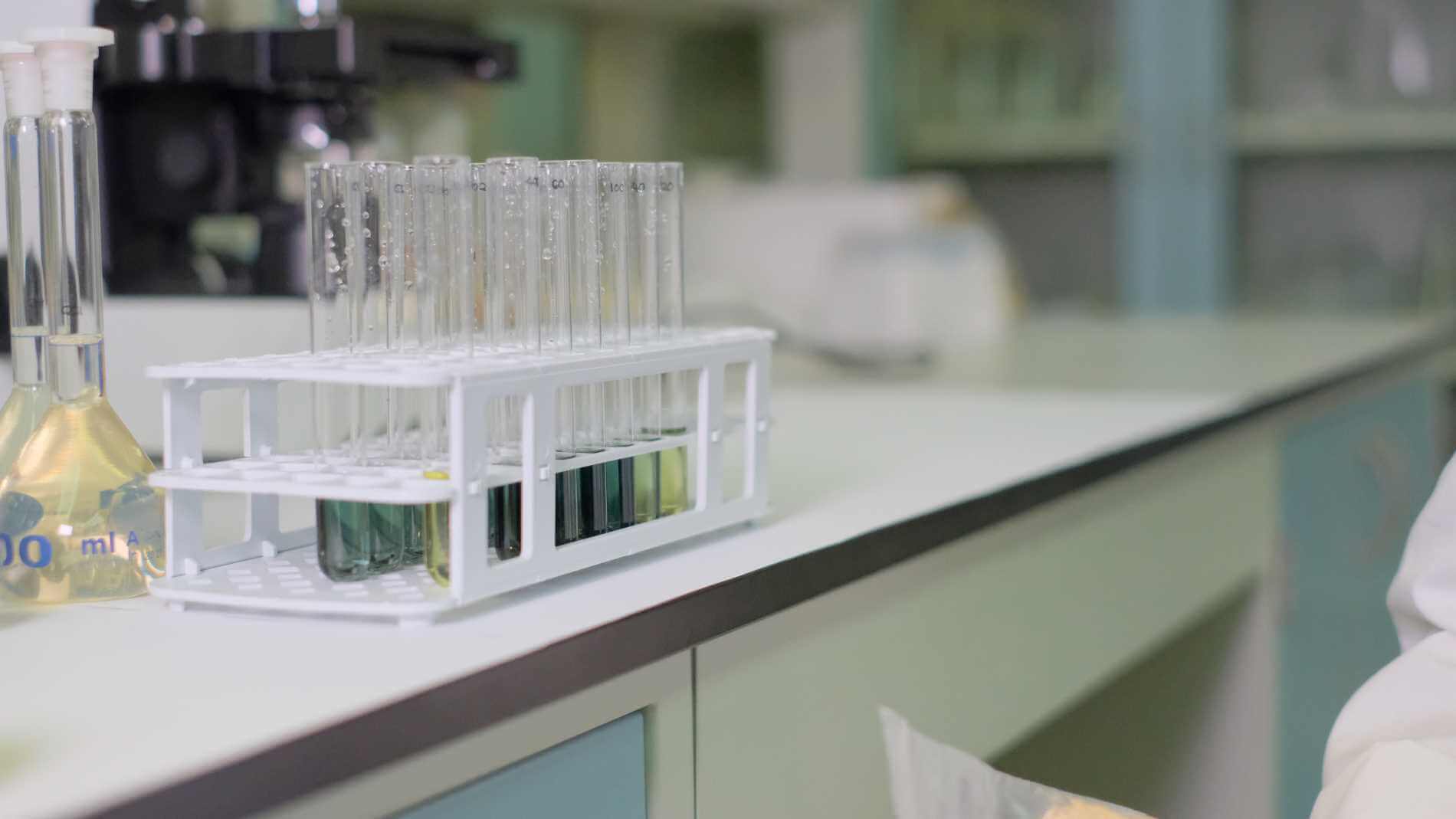

Heavy metals in Tongkat Ali may be toxic if they exceed safety limits. The same applies for vegetables, fruits and other plant-based herbs that you consume daily.
This article is a deep-dive review of mercury, lead, cadmium and arsenic found in Tongkat Ali and whether it is safe for your daily consumption.
We will share the permissible safety limits of Tongkat Ali heavy metals using guidelines set by the FDA, WHO, and the Ministry of Health Malaysia.
This information will help you to answer whether Tongkat Ali is safe if you are worried about toxicity limits from mercury, lead, cadmium and arsenic exposure.
Most plants including vegetables, fruits, herbs and spices contain heavy metals such as lead, cadmium, mercury, and arsenic which are absorbed from the soil through the roots. This is true for Tongkat Ali.
This raises safety concerns about Tongkat Ali’s long-term health risks and side effects from mercury, lead, cadmium and arsenic.
Whilst there are controls in place to minimize heavy metals found in Tongkat Ali, users are reminded to exercise caution when consuming plant-based herbal remedies.
Being aware of the safety limits of heavy metals in Tongkat Ali helps you decide the best Tongkat Ali supplements for your health.
Tongkat Ali is relatively safe in doses between 200 mg to 600 mg daily provided the extract complies to the heavy metal safety limit guidelines set by the U.S Foods and Drugs Authority (FDA) or the World Health Organization (WHO).
The European Food Safety Authority (EFSA) panel concluded the potential DNA tissue damage of Tongkat Ali at a high dose of 2,000 mg/kg body weight in rats, which is equivalent to 322 mg/kg of human weight. Therefore, for an adult weighing 75 kg, Tongkat Ali may be potentially toxic at a single dose of 24,000 mg.
However, in reality, most users are taking between 200 mg to 600 mg daily, which is safe and far below the toxicity limit to induce such a level of DNA damage as reported by EFSA.
Tongkat Ali contains heavy metals such as mercury, lead, and cadmium. But users are recommended to observe safety limits as per USFDA and WHO guidelines to ensure it is safe for consumption.
Here is a guideline that you can use when checking for mercury, lead, cadmium and other heavy metal content in Tongkat Ali.
| Heavy Metal Content | Test result from Tongkat Ali samples | Safety Threshold Guideline (FDA / WHO) |
| Lead (Pb) | < 2.0 ppm | 1.0 – 2.5 ppm |
| Cadmium (Cd) | < 0.3 ppm | 1.0 – 2.0 ppm |
| Arsenic (As) | < 1.0 ppm | 0.5 ppm – 1.0 ppm |
| Mercury (Hg) | < 0.05 ppm | 0.5 ppm – 1.0 ppm |
Note: Units are measured in parts per million (ppm)
The level of heavy metals found in Tongkat Ali depends largely on the soil quality, location of harvesting (away from human contaminants, mining activities and pollution), and agriculture practices including harvesting techniques (eg: the use of pesticides).
Mercury, lead, cadmium and arsenic are common heavy metals found in Tongkat Ali supplements, powder extracts, in its roots, bark or leaves.
As with other plant-based supplements, it is important to understand how each of these heavy metals may pose risks to your health.
The permissible safety limits of each heavy metal will help you decide when choosing the right Tongkat Ali supplement from reputable brands.
Here is a deep-dive safety review of four heavy metals found in Tongkat Ali.
Lead (Pb) is one of heavy metals contaminations found in Tongkat Ali and other herbs such as Panax Ginseng, Ashwagandha and others.
Consuming high lead content is known to cause neurological disorders, anemia, kidney damage, miscarriage, lower sperm count and hepatotoxicity in higher concentration.
Prescribed WHO limit for lead contents in herbal medicine is 10 mg/kg dry weight while the dietary intake limit for Pb is 3 mg/week.
Meanwhile, Food Drugs Authority (FDA) has set a maximum allowable level of 2.5 ppm for lead in certain spices, including paprika, turmeric, and nutmeg.
Safety Limit of Lead (Pb)
Conclusion: Tongkat Ali with lead content lower than 2.0 ppm is considered safe.
Other vegetables, food or seafood that contain lead (Pb):
Cadmium is found in Tongkat Ali plants in small amounts which is relatively safe. Similarly, cadmium is found in root vegetables such as carrots, radishes, and potatoes and leafy vegetables such as spinach, lettuce, and kale too.
Comparatively, cadmium level found in seafood such as crab, lobster and shrimp are highly toxic than Tongkat ali and may lead to kidney, bone and pulmonary damages.
Comparing cadmium levels in seafood to Tongkat Ali, the amount of cadmium is significantly lower and safe for consumption.
The U.S. FDA safety limit on for cadmium in crab, lobster and shrimp is 2.0 parts per million (ppm), while the safety limit of cadmium in molluscan shellfish is 1.0 ppm.
Safety Limit of Cadmium (Cd)
Conclusion: Tongkat Ali with Cadmium content lower than 0.3 ppm is considered safe.
Other vegetables, food or seafood that contain cadmium (Cd)
Mercury found in Tongkat Ali can be toxic if it exceeds 1.0 parts per million (ppm). Generally, Yellow Tongkat Ali (Eurycoma Longifolia) has the lowest mercury levels between 0.05 ppm to 0.10 ppm, which are considered safe for long-term consumption, compared to Red or Black Tongkat Ali.
Tongkat Ali Type (Species) | Average Mercury Levels (Hg)*
| Mercury Safety Limit (FDA) |
Yellow Tongkat Ali (Eurycoma Longifolia)
| 0.05 ppm – 0.10 ppm | 1.0 ppm |
Red Tongkat Ali (Stema Tuberosa)
| 0.40 ppm – 0.80 ppm | 1.0 ppm |
Black Tongkat Ali (Polyalthia Bullata)
| 0.50 ppm – 2.35 ppm | 1.0 ppm |
The mercury limit set by Foods Drugs Authority (FDA) and by The World Health Organization (WHO) on fish and seafood is between 0.5 ppm to 1.0 ppm. Whilst the FDA regulates dietary supplements under the Dietary Supplement Health and Education Act (DSHEA), FDA does not establish specific limits for mercury in dietary supplements.
Tongkat Ali harvested near mining activities are to be avoided as mercury emissions from industrial processes, especially those that release mercury into the environment will contaminate the soil.
Safety Limit of Mercury (Hg)
Conclusion: Tongkat Ali with mercury content lower than 0.05 ppm is considered safe.
Other vegetables, food or seafood that contain mercury (Hg)
Apples, carrots, and leafy greens are known to contain both inorganic and organic arsenic that accumulate through absorption from the soil or water. Some crops like rice are more prone to arsenic uptake than others.
The World Health Organization (WHO) and FDA does not have specific safety limits or maximum residue limits for organic arsenic in vegetables, food, herbs, spices or seafood.
For rice products, the FDA has set a guidance level of 100 ppb or 0.1 ppm for inorganic arsenic in rice cereal for infants. For seafood, FDA has set an “enforcement level” of the inorganic arsenic level to 0.5 ppm for tuna, salmon, cod, clams and others.
While organic arsenic is generally considered safe than inorganic arsenic, it’s essential to maintain a balanced and varied diet and consume a wide range of foods.
Safety Limit of Inorganic Arsenic (As)
Conclusion: Tongkat Ali with organic arsenic content lower than 1.0 ppm is considered safe.
Other vegetables, food or seafood that contain Arsenic (As)
There are no studies to investigate long-term health risks from Tongkat Ali based on existing heavy metals levels of mercury, arsenic, lead and cadmium.
However, the amount of mercury, lead, arsenic or cadmium in Tongkat Ali may trigger immediate mild to adverse side effects that are noticeable to most first-time users.
Please notify your nearest doctor or healthcare professional if you suspect any side effects that may attributed to the heavy metal content from Tongkat Ali.
As with other plant-based herbs, most plant absorbs the good and the bad from the soil. And there are ways to minimize the heavy metal risks.
The good news is that some quality Tongkat Ali supplements in the market contains low amount of mercury, lead, arsenic and cadmium levels that are safe for daily or long-term consumption.
However, it is important that you check with the respective Tongkat Ali brands or manufacturer for heavy metal reports to ensure the amount of mercury, arsenic, lead and cadmium are within the safety limits.
Mercury-free Tongkat Ali supplement is false advertising and almost non-existence. As long as Tongkat Ali is planted on soil, it will contain some level of mercury.
However, there are three ways to ensure you are buying a contaminant-free Tongkat Ali with low levels of mercury, arsenic, lead, and cadmium.
Harvesting Tongkat Ali in the wild rainforest works better to reduce the mercury, lead and arsenic levels due to better soil quality from less human contaminants and pollutants.
Tongkat Ali that is harvest far from mining activities or human civilization have lower risks from mercury and arsenic pollution from the surrounding environment.
Pro Tip:
You can buy quality Malaysian Tongkat Ali that is harvested in low-contamination locations such as remote rainforests of Pahang, or Johor. The 130-million-year-old rainforests located in the Malaysian Peninsular is rich with biodiversity and quality soil with low level of mercury, arsenic and lead.
Avoid buying Indonesian Tongkat Ali that is harvested near mining areas in Kalimantan, which is reported to have higher mercury, lead, arsenic and cadmium levels.
Hot water extraction, also known as blanching, is a technique used to remove certain contaminants, including some water-soluble heavy metals, from vegetables or plants. Hot water extract is usually followed by rapid cooling using spray-dried or freeze-dried method.
Tongkat Ali hot water extraction may remove some heavy metals, such as lead and cadmium to a certain extent. Other heavy metals, such as arsenic, may have greater solubility and can be partially leached out through the water extraction.
Pro Tip:
You can buy AKARALI® which uses Physta®, a hot water standardized extraction that minimizes heavy metals content from Tongkat Ali. This technology was co-developed by the MIT-Malaysia Biotech Partnership Programme.
Heavy metal tests and microbial tests are used minimize risks when producing Tongkat Ali, or when sourcing for raw Tongkat Ali extracts.
Reputable manufacturers and brands are known to conduct regular heavy metal tests every month, or for every batch of production to ensure the mercury or arsenic content in Tongkat Ali is below the FDA or WHO permissible limits.
Pro Tip:
Always check for Certificate of Analysis (COA) or heavy metal test report when buying any Tongkat Ali supplements to ensure that it complies with the heavy metal tests and the Malaysian Tongkat Ali Standards MS2409 to ensure the highest safety standards.
Find out common questions and answers related to Tongkat Ali toxicity and safety.
Yellow Tongkat Ali (Eurycoma Longifolia) harvested in wild rainforests at high elevations has lower mercury compared to Black Tongkat Ali (Polyalthia Bullata) and Red Tongkat Ali (Stema Tuberosa) that are mostly found in lower elevations near rivers.
A research study showed that 26% out of 100 Black Tongkat Ali (or Tongkat Ali Hitam) contain high mercury of 0.53 to 2.35 ppm, which exceeds the safety limit of 1.0 ppm set by FDA.
Black Tongkat Ali is often found in swampy areas near rivers and its higher mercury content is due to water contamination from human waste and pollution.
Malaysian Tongkat Ali is generally safe as it complies to the Malaysian Standards MS2409 and safety standards guideline by the Ministry of Health Malaysia.
A recent study conducted in 2023 by the Faculty of Industrial Sciences & Technology, University Malaysia Pahang on Tongkat Ali roots taken from the state of Perak (in Malaysia) showed the toxic metal content was relatively low, which is less than 0.1 ppb for arsenic, cadmium, and lead, and 0.005 ppm for mercury.
This complies to the safety standards set by the National Pharmaceutical Regulatory Agency (NPRA), a Government agency under Ministry of Health Malaysia. The NPRA states that the safety limit of heavy metal content such as arsenic are (<10.0 ppb), cadmium (<0.5 ppb), lead (<0.5 ppb) and mercury (<0.3 ppm), which applies to any herbal products and traditional medicines sold in Malaysia.
Always ask for a copy of the heavy metal test report before you buy any Tongkat Ali supplements from an unknown brand to check on the mercury, cadmium, lead, and other toxic that may exceed the permissible safety limits.
Mercury, lead, cadmium and arsenic found in Tongkat Ali are toxic if it exceeds the maximum permissible safety limits. This applies to most fresh vegetables, fruits and seafood.
Buying Tongkat Ali that are harvested in low-contamination locations, practicing good agricultural practices and using hot water extraction minimize risk exposure to heavy metal content.
Adherence to safety limits of heavy metal content and performing periodic tests are preventive measures that can be taken by manufacturers to ensure Tongkat Ali is safe for long term consumption.
As a precautionary measure, always ask for heavy metal test report from manufacturers when buying quality Tongkat Ali supplements.
Ask our experts on heavy metals content in Tongkat Ali and how it may affect your health.
Note to consumers:
AKARALI Tongkat Ali contains mercury (Hg) below 0.05 p.p.m, which is far below the FDA’s safety limit threshold of 1.0 parts per million (p.p.m). As a comparison, mercury levels found in carp, tuna, bluefish, cod, and other seafood are higher than 0.35 p.p.m.
Source: https://www.fda.gov/food/environmental-contaminants-food/mercury-levels-commercial-fish-and-shellfish-1990-2012

Naressa Khan contributes regularly on AKARALI and is part of the global Tongkat Ali research team. As a writer and journalist, Naressa specializes in nutrition, health supplements, and natural wellness. With this approach always in mind, she explores fact-based and scientific evidence of topics related to health, herbs and natural wellness.
Our articles are third party reviewed by our panel of experts and medical advisors to ensure the facts are accurate and credible. These are validated against multiple source references which include but not limited to research studies, peer-reviewed journals, pre-clinical studies, clinical tests and other credible publications.
Our panel of medical advisors and experts are highly experienced in their individual fields. However, they do not provide any medical advice or recommendations arising from content published in this article.
Disclaimer: The content published in this article is for educational purposes and not intended to provide any form of recommendations, directly or indirectly to purchase or consume herbal supplements, drugs, medications, alternative remedies and practices or any brands mentioned in this article. By reading this, the sole responsibility and decision lies on the reader to make an informed decision based on publicly available information published on the internet. Any herbal supplements can be used as a health supplement, dietary plan or to treat illnesses. However, we encourage you to consult your nearest doctor before making any purchase from this website or any other websites or social platforms after reading this article. We do not hold any responsibility or accountability for any products purchased from this website or any third-party websites that are linked to this articles, sales channels or social platforms.